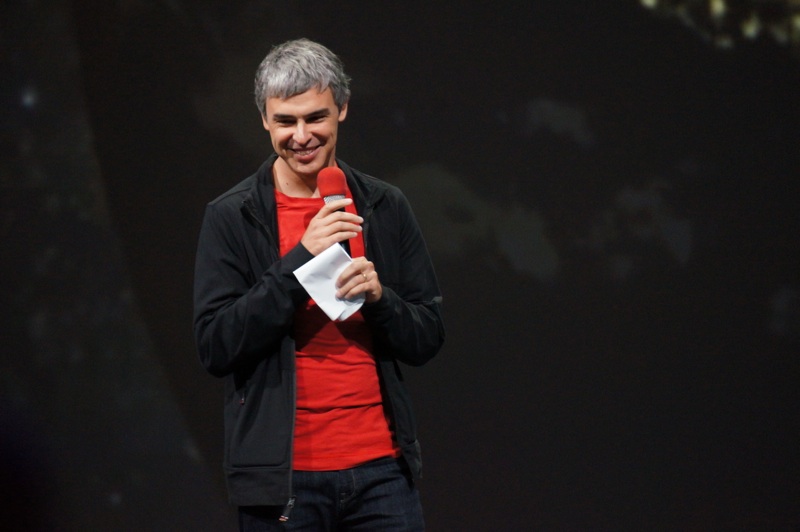Larry Page is feeling sentimental. The Google chief executive delivered a heartstring-pulling speech today at the I/O conference in which he spoke about the intersection of technology, humanity, and, of course, Google.
[aditude-amp id="flyingcarpet" targeting='{"env":"staging","page_type":"article","post_id":738213,"post_type":"story","post_chan":"none","tags":null,"ai":false,"category":"none","all_categories":"business,","session":"D"}']It’s obvious that technology built this man’s life.
Page successfully delivered what should be the end to the era of Steve Jobs-esque inspiring keynotes. He’s filled with hope for technology’s future, saying we’ve only hit about 1 percent of what we’re capable of producing.
AI Weekly
The must-read newsletter for AI and Big Data industry written by Khari Johnson, Kyle Wiggers, and Seth Colaner.
Included with VentureBeat Insider and VentureBeat VIP memberships.
He opened the talk by recalling a time his father took him on a road trip to a robotics conference, getting him in even though Page was under the admitting age. He explained that we’ve got a barrier to entry for youngsters. Young people aren’t interested in computer sciences, and that is a scary thought. He urged people to get children involved in engineering, math, and sciences.
But Page is also “sad.” Our technology is failing us, in his eyes. The web hasn’t done enough, though technology itself is booming. For Page, it’s about building a generation that will build life-altering tools. Tools that will change not just the way we watch TV but also the way we live our lives. The way we spend our days.
“Technology should do the hard work, so people can get on with the things that make them happiest in life,” he said at Google I/O. “People are starving in the world, not because we don’t have enough food, but because we’re not organized. And computers are part of that. … Farming is great if that’s what you want to do, but not if that’s what you have to do.”
He says he’s uninterested in the stories about Google versus other companies (of course, everyone’s thinking Apple). Instead, he’s focused on building “things that don’t exist.” To him, the “important things aren’t zero-sum.” An example of one of these big visions is giving people’s commuting time back through self-driving cars.
He explained that technologies need a safe place to experiment, that technology is stunted by regulatory and legislative barriers.
“Many of our laws can’t keep up with the pace of change in technology. … Maybe more of us need to go into other areas, and in those areas, improve and understand technology,” he said, “We had Google Health, and we didn’t make that much progress with it. The primary obstacle was regulatory.”
[aditude-amp id="medium1" targeting='{"env":"staging","page_type":"article","post_id":738213,"post_type":"story","post_chan":"none","tags":null,"ai":false,"category":"none","all_categories":"business,","session":"D"}']
But all in all, Page doesn’t actually seem bitter. He seems hopeful. Maybe it was his raspy voice or his musings about technology replacing the labor so we can do what we enjoy, but it seems Page may have just become tech’s richest hippie.
Larry Page image via Jolie O’Dell/VentureBeat
VentureBeat's mission is to be a digital town square for technical decision-makers to gain knowledge about transformative enterprise technology and transact. Learn More

